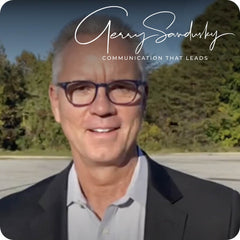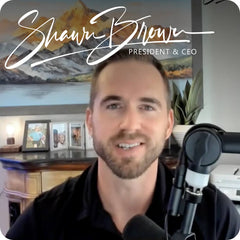As a corporate executive, you're probably used to the influence of language. The appropriate message has the power to convince, motivate, and inspire. But have you ever given thought to the use of quotations in your speeches or writings? A well-placed quote can give your writing more authority, substance, and intrigue. However, what precisely is a quote and why is it significant for your company? The definition of a quote and its advantages for your professional communications are covered in this article.
What Is a Quote?
A quote is a phrase or sentence taken directly from a reliable source, such as a book, an article, or a speech. It is often used to support or reinforce a statement or argument. The source of the quote should be cited to give credit to the original author and to establish the credibility of the information.
Why Do You Need a Quote For Business?
There are many advantages to employing quotes in the corporate environment. First, giving your ideas greater weight and substance might help you communicate your views more clearly. You can support your arguments and demonstrate that your thoughts are based on reality by referring to reliable sources.
Quotes can also help your audience remember and engage with your material. When you choose a quote that connects with your audience, it can establish a strong emotional bond and have a profound effect. Overall, using quotes in your business communications can strengthen your point and make you more memorable in a crowded field.
What Are The Different Types of Quotes?
You can utilize a variety of quotes in your professional communications, each having a certain function. The most frequent kind of quotation is a direct quote, in which you repeat the original author's words verbatim. Conversely, indirect quotes allow you to explain the author's meaning in your own words. Additionally, you can use block quotations, which are lengthier quotes that are separated from the main content, or partial quotes, which are a condensed version of the complete quote.
Using a testimonial as a quote is another option. Here, you can highlight the advantages of your good or service by quoting a happy customer or client. There are also well-known sayings or phrases that are credited to a certain person, which are known as famous quotes. These may be employed to provide cultural background or to arouse particular feelings.
What Are Direct Quotes?
Direct quotations are exact words of what a source or other individual has said or written. To give the speaker or author of the original work credit, they are cited and surrounded in quotation marks. Direct quotations are frequently used to back up claims, bolster arguments, or provide authority to statements.
Making sure that a direct quote is pertinent, accurate, and correctly attributed to the original source is crucial when using it in business communications. Because they offer a clear connection to the source material and can support your message, direct quotes can be very powerful in presentations and written materials.
What Are Indirect Quotes?
Indirect quotations, usually referred to as paraphrased quotes, are a technique of expressing another person's words in your own words. They do not require the use of quotation marks, unlike direct quotes, but they still need to be properly cited in order to acknowledge the original author or speaker.
When you want to condense a lengthy quotation into a shorter version or when you want to clarify the meaning of a complicated concept in your own words, indirect quotes might be helpful. They can also be applied to a quote to add your own interpretation, documents, or analysis, or to link several statements together to form a logical argument. It's critical to maintain the quote's original meaning while rephrasing it in your own words when employing indirect quotes.
What Are Partial Quotes?
Partial quotations, usually referred to as shortened quotes, are condensed versions of whole quotes that concentrate on a certain section. They can be used to shorten or accentuate a single point in a larger quote. When a full quote would be too lengthy or tangential to the argument being made, partial quotes can also be utilized.
It's crucial to preserve the quote's original meaning and avoid extrapolating it when using fragments of it. This means that the quote's selected passage must precisely reflect the speaker's intended meaning. Furthermore, it's essential to give credit where credit is due by accurately attributing the quote to the original source.
What Are Block Quotes?
When a direct quote exceeds four lines of text, block quotes are utilized instead. They don't need to be quoted because they are distinct from the rest of the content, frequently indented on both sides or in a different paragraph. Block quotations are frequently used to highlight a lengthy quote's significance or to distinguish it from the surrounding content.
When utilizing block quotes, it's crucial to make sure the quotation is pertinent to the argument being made and that the source is acknowledged. Furthermore, it's important to refrain from changing the quote's context or meaning because doing so may distort the original author's intention.
When To Use Quotes in Business
Utilizing quotes in your business presentations, reports, and written materials can significantly increase their impact. Quotes can strengthen your ideas, lend credence, and give context. Here are some scenarios in which quotes are helpful:
- To provide authority: Quotes from industry experts, respected leaders, or reputable sources can add weight to your arguments and lend credibility to your statements.
- To add insight: Quotes can offer unique perspectives and insights that can enhance the reader's understanding of a topic. They can also help simplify complex ideas or concepts.
- To support arguments: Quotes can be used to provide evidence and support to your arguments. They can also be used to refute opposing arguments.
- To make an impact: Well-chosen quotes can capture the attention of your audience and leave a lasting impression. They can be used to inspire, motivate, or challenge your audience.
Quotations can be a potent tool to improve your communications in the workplace. They can lend credibility, understanding, support, and impact. But it's critical to utilize them properly, referencing the original work, and keeping the intended meaning in mind. Quotes can be used to effectively convey your message and advance your professional objectives if you use the appropriate strategy.
Do Quotes Help Increase The Quality Of Services?
While quotes can improve the quality of your business communications, they do not directly impact the quality of your services. However, incorporating quotes into your products, marketing materials, customer testimonials, or employee training sessions can enhance the perception of your brand and increase customer satisfaction.
By utilizing quotes from satisfied customers or industry experts, you can demonstrate your commitment to providing high-quality services and establish trust with potential clients.
Additionally, quotes can help motivate and inspire your employees, leading to better performance and more satisfied customers. Therefore, while quotes may not directly improve the quality of your services, they can indirectly contribute to your overall success in the business world.
How To Incorporate Quotes
When incorporating quotes into your business communications, it's important to keep the following best practices in mind:
- Choose the right quote: Select quotes that are relevant to your topic and add value to your message. Avoid using quotes that are too long or obscure.
- Attribute the quote correctly: Always give credit to the original author or source of the quote. Use proper citation formats, such as MLA or APA, depending on the context.
- Introduce the quote: Provide context for the quote by introducing it with a sentence or two. This will help your audience understand why the quote is relevant.
- Analyze the quote: After introducing the quote, provide some analysis or commentary on its significance. This will show your audience that you understand the quote and how it relates to your message.
- Use quotes sparingly: Don't overuse quotes in your communications. Use them strategically and selectively to add impact and value.
You may successfully use quotes in your business communications and strengthen your message by adhering to these best practices. Quotes should never be utilized in place of your own original ideas or arguments; rather, they should serve to bolster your arguments and lend credibility.
How Do I Create My Own Quote?
Creating your own quote can be a powerful way to communicate your message and establish yourself as a thought leader in your field. Here are some tips to help you create your own quote:
- Reflect on your values and beliefs: Think about what you stand for and what is important to you. What message do you want to communicate to others?
- Be concise and clear: A good quote should be simple, memorable, and easy to understand.
- Use vivid language: Choose words that are descriptive and engaging. Use metaphors or analogies to create a powerful image.
- Be authentic: Your quote should reflect your own unique perspective and voice. Don't try to imitate someone else's style.
- Test it out: Share your quote with others and see how they respond. Does it resonate with them? Does it effectively communicate your message?
Remember, a great quote can inspire, motivate, and challenge your audience. It can also help establish your credibility and authority in your field. So take the time to craft a quote that truly reflects who you are and what you stand for.
What Are Good Business Quotes?
Good business quotes are those that resonate with your audience and reinforce your message. Here are some examples of good business quotes:
- "The only way to do great work is to love what you do." - Steve Jobs
- "Success is not final, failure is not fatal: it is the courage to continue that count." - Winston Churchill
- "Innovation distinguishes between a leader and a follower." - Steve Jobs
- "If you don't like change, you're going to like irrelevance even less." - General Eric Shinseki
- "The most successful entrepreneurs are those who are not afraid to take risks." - Mark Zuckerberg
Conclusion
In conclusion, incorporating quotes into your business communications can add depth and credibility to your message. Remember to create your own quote by reflecting on your values and beliefs, being concise and clear, using vivid language, being authentic, and testing it out. Good business quotes are those that resonate with your audience and reinforce your message. By following these best practices, you can effectively utilize quotes in your presentations or written materials to showcase your expertise and attention to detail. With careful consideration and acknowledgment of these tips, you can deliver a powerful message that leaves a lasting impression.
Final Thoughts
Stand out in your business and personal correspondence with the touch of a handwritten signature, logo, or template. Here at Artlogo, we're dedicated to producing unique and personalized designs that embody your professional identity. Don't settle for a simple font, let us elevate your image with our bespoke creations and discover the impact a personal touch can make.
Sources
- https://dictionary.cambridge.org/dictionary/english/quote
- https://www.studysmarter.co.uk/explanations/english/synthesis-essay/direct-quote/
- https://www.investopedia.com/terms/i/indirectquote.asp
- https://wisc.pb.unizin.org/esl117/chapter/partial-quotes/
- https://www.scribbr.com/frequently-asked-questions/what-is-a-block-quote/
























Share to: